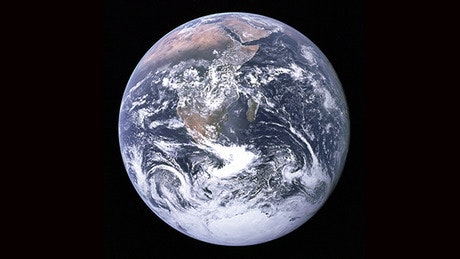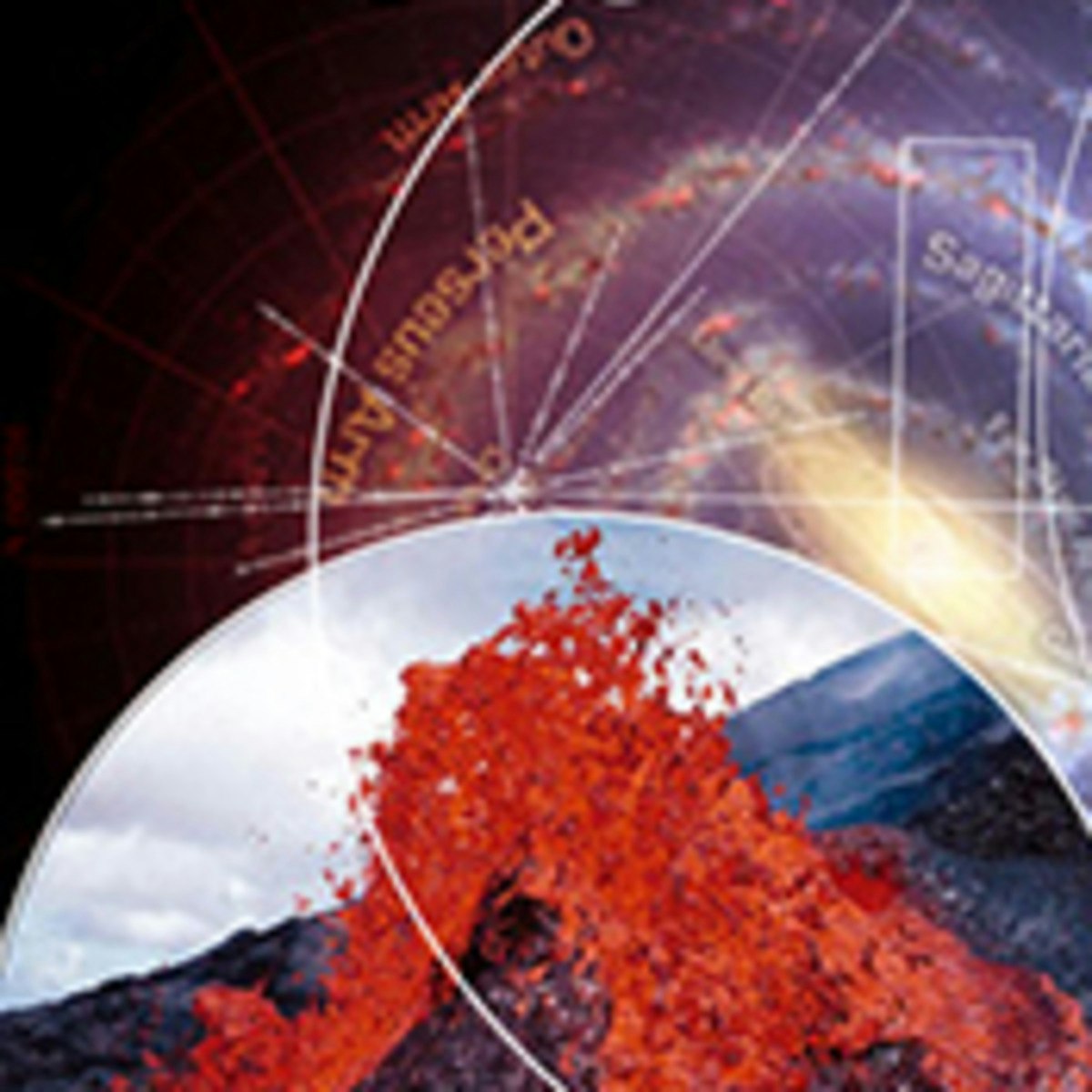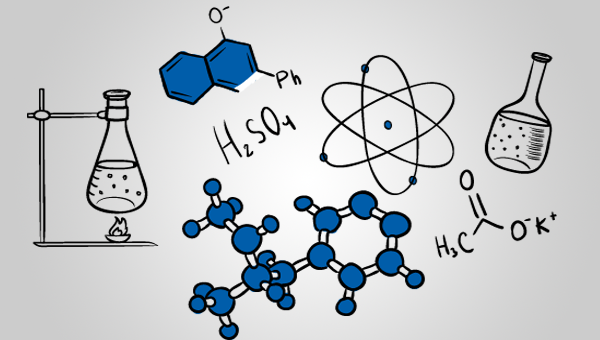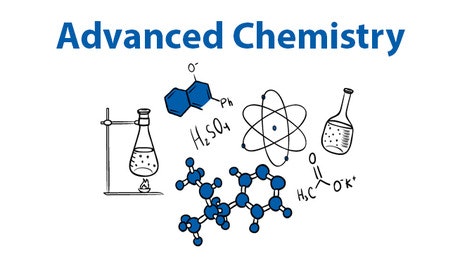Geochemist
A Career Guide to Geochemistry: Understanding Earth's Chemical Processes
Geochemistry stands at the crossroads of geology and chemistry, delving into the chemical composition of the Earth and other celestial bodies. It seeks to understand the distribution, migration, and interaction of chemical elements within our planet's systems, from the deepest mantle to the surface environments we inhabit. This field investigates the fundamental processes that shape our world, including rock formation, mineral resources, water cycles, and climate patterns.
Working as a geochemist offers the chance to unravel Earth's history encoded in rocks and minerals. It involves exploring remote locations for sample collection, analyzing materials with sophisticated laboratory equipment, and using data to solve critical environmental or resource-related problems. The interdisciplinary nature of geochemistry means collaborating with experts across various scientific fields, making it a dynamic and intellectually stimulating career path.
Introduction to Geochemistry
What is Geochemistry?
Geochemistry is the scientific discipline that uses the principles of chemistry to explain the mechanisms behind major geological systems. It explores the chemical elements found in rocks, soils, water, and the atmosphere, studying their abundance, distribution, and behavior. By analyzing chemical compositions and processes, geochemists decipher the history and evolution of the Earth and other planets.
This field plays a crucial role within the broader Environmental Sciences and Earth Sciences. It helps us understand how natural systems operate, from the formation of mountains and oceans to the cycling of essential nutrients. Geochemistry provides vital tools for addressing global challenges like resource management and environmental protection.
Understanding the Earth's chemical makeup allows geochemists to predict geological events, locate valuable mineral deposits, assess pollution impacts, and reconstruct past climates. It's a field driven by curiosity about our planet's inner workings and a desire to apply scientific knowledge to practical problems.
To get a broad overview of the Earth systems that geochemists study, consider introductory courses in Earth Science. These courses provide foundational knowledge about geological processes, climate, and the history of our planet.
For a comprehensive look at the history and foundational principles of geology, which provides context for geochemical studies, classic texts are invaluable.
Core Responsibilities of a Geochemist
The primary responsibility of a geochemist is to analyze the chemical nature of Earth materials. This involves collecting samples—such as rocks, minerals, water, soil, or atmospheric gases—and subjecting them to various analytical techniques. The goal is to determine their composition and understand the chemical reactions that have occurred or are occurring.
Data interpretation is another key responsibility. Geochemists use their findings to build models, test hypotheses, and draw conclusions about geological processes. This often involves complex data analysis, statistical methods, and the use of specialized software to visualize and interpret chemical data patterns.
Communicating results is also vital. Geochemists write technical reports, publish research papers in scientific journals, and present findings at conferences. They may also advise government agencies, private companies, or environmental organizations based on their scientific assessments.
Where Do Geochemists Work?
Geochemists find employment across several sectors. Academia is a major employer, with universities and research institutions hiring geochemists as professors, researchers, and lab managers. In these roles, they conduct fundamental research, teach students, and contribute to the advancement of the field.
Government agencies, such as geological surveys (like the U.S. Geological Survey) and environmental protection agencies, also employ geochemists. Here, they might work on resource assessment, environmental monitoring, hazard evaluation (like volcanic activity or groundwater contamination), and policy development related to Earth sciences.
The private sector offers numerous opportunities, particularly in natural resource exploration (mining, oil, and gas), environmental consulting, and materials science. Companies rely on geochemists to locate valuable deposits, manage environmental remediation projects, assess risks, and ensure regulatory compliance.
Connections to Other Fields
Geochemistry is inherently interdisciplinary, bridging geology with chemistry, physics, biology, and environmental science. Its principles are applied in fields ranging from oceanography, studying marine chemical cycles, to planetary science, analyzing the composition of meteorites and other planets.
Environmental science heavily relies on geochemistry to understand pollutant transport, water quality issues, soil contamination, and the effects of climate change. Geochemists collaborate with environmental scientists to develop remediation strategies and monitor ecosystem health.
Similarly, collaborations with hydrologists are common, particularly in studies of groundwater flow, water resource management, and contaminant hydrology. Geochemists provide insights into the chemical interactions between water and rock that govern water quality.
The field also intersects with materials science, contributing to the understanding of mineral properties and the development of new materials. Furthermore, techniques developed in geochemistry, such as isotope analysis, have applications in archaeology, forensics, and food science.
What Does a Geochemist Do?
A Typical Day: Lab, Field, and Desk
The daily life of a geochemist can vary significantly depending on their specific role and employer. Many geochemists spend considerable time in the laboratory, operating analytical instruments like mass spectrometers or electron microprobes. They prepare samples, run analyses, troubleshoot equipment, and meticulously record data.
Fieldwork is another common component, especially for those in exploration or environmental assessment. This might involve traveling to remote locations to collect rock, soil, water, or gas samples. Field campaigns can range from a single day to several weeks or months and often require physical stamina and adaptability to challenging conditions.
A significant portion of a geochemist's time is also spent at a desk. This involves analyzing data using statistical software and geochemical modeling programs, interpreting results, writing reports or research papers, preparing presentations, managing projects, and collaborating with colleagues via email or meetings. Reading scientific literature to stay current is also essential.
Areas of Specialization
Geochemistry encompasses numerous specializations. Isotope geochemistry uses the ratios of different isotopes of elements to trace geological processes, date rocks, and reconstruct past environments. Aqueous geochemistry focuses on the chemical processes occurring in water, including oceans, rivers, lakes, and groundwater, often related to water quality and pollution.
Organic geochemistry studies the role of organic matter in geological systems, crucial for understanding the formation of fossil fuels (oil and natural gas) and the carbon cycle. Exploration geochemistry applies geochemical principles to find mineral and energy resources beneath the Earth's surface.
Other specializations include environmental geochemistry, which assesses contamination and remediation; cosmochemistry, studying the chemical composition of extraterrestrial materials; and high-temperature geochemistry, investigating processes deep within the Earth, like magma formation and volcanism.
Working Alongside Other Professionals
Geochemistry rarely happens in isolation. Geochemists frequently collaborate with professionals from various disciplines. In resource exploration, they work closely with geologists and geophysicists to interpret subsurface data and target drilling locations.
In environmental projects, collaborations often involve hydrologists, soil scientists, biologists, and environmental engineers to assess contamination impacts and design effective cleanup strategies. Understanding the perspectives and methodologies of these related fields is crucial for successful teamwork.
Within academic settings, geochemists might collaborate with physicists on instrument development, mathematicians on modeling techniques, or climatologists on paleo-climate reconstructions. This interdisciplinary approach is essential for tackling complex scientific questions.
Real-World Geochemistry Projects
Geochemists contribute to solving tangible problems. For instance, they might analyze water samples near an industrial site to determine the source and extent of heavy metal pollution, informing remediation efforts and protecting public health.
In mining, a geochemist could analyze rock chip samples from drilling programs to identify zones enriched in valuable metals like gold or copper, guiding further exploration and mine development. This involves understanding the chemical conditions under which ore deposits form.
Another example involves studying ice cores from Antarctica or Greenland. By analyzing trapped air bubbles and isotopic variations in the ice, geochemists reconstruct past atmospheric compositions and temperatures, providing critical data for understanding long-term climate change.
Formal Education Pathways
Preparing in High School
Aspiring geochemists should build a strong foundation in science and mathematics during high school. Coursework in chemistry, physics, biology, and Earth science is highly recommended. Developing strong mathematical skills, including algebra, calculus, and statistics, is equally important, as quantitative analysis is central to the field.
Beyond core subjects, developing strong writing and communication skills is beneficial for report writing and presenting findings. Computer literacy, including familiarity with spreadsheets and basic programming concepts, can also provide an advantage.
Engaging in science clubs, participating in science fairs, or seeking opportunities for relevant summer programs or internships can provide valuable early exposure and demonstrate initiative to university admissions committees.
These foundational courses cover essential chemistry concepts needed before delving into specialized geochemistry topics.
Undergraduate Studies
A bachelor's degree is typically the minimum requirement for entry-level positions in geochemistry, often serving as a stepping stone to graduate studies. Common undergraduate majors include Geology, Earth Science, Chemistry, or Environmental Science. Some universities may offer specific geochemistry tracks or degrees.
Regardless of the major, coursework should ideally include foundational geology (mineralogy, petrology, structural geology), comprehensive chemistry (general, organic, physical, analytical), physics, and mathematics (calculus, differential equations, linear algebra). Field camp, a traditional capstone experience in geology programs involving intensive fieldwork, is often required or highly recommended.
Seeking research opportunities with professors during undergraduate studies is highly valuable. This provides hands-on experience, potential publication opportunities, and strong letters of recommendation for graduate school or job applications. Familiarity with relevant analytical techniques and software is also a plus.
These courses provide a broader context in geoscience and chemistry, essential for a geochemist's toolkit.
Graduate Programs and Research
For research positions, academic roles, or more specialized industry jobs, a graduate degree (Master's or PhD) is usually necessary. Master's programs typically take 2 years and often involve coursework and a research thesis, preparing students for advanced technical roles in industry or government.
A PhD program (typically 4-6 years) is heavily research-focused and required for most university faculty positions and high-level research roles. PhD candidates conduct original research under the guidance of a faculty advisor, culminating in a dissertation. This involves deep specialization in a subfield of geochemistry.
Choosing a graduate program involves considering faculty research interests, available laboratory facilities, program reputation, and funding opportunities. Strong performance in undergraduate coursework, research experience, and standardized test scores (like the GRE, though requirements vary) are important for admission.
These books offer in-depth knowledge relevant to graduate studies and professional practice in geochemistry and related fields.
Essential University Courses
Key university courses for aspiring geochemists build upon foundational science. Core subjects include Mineralogy (the study of minerals), Petrology (the study of rocks and their formation), and Structural Geology (the study of rock deformation).
Specific geochemistry courses are critical. These often include Aqueous Geochemistry, Isotope Geochemistry, Organic Geochemistry, and Thermodynamics. Analytical Chemistry courses provide essential laboratory skills and understanding of instrumental techniques.
Courses in related fields like Hydrology, Sedimentology, Geophysics, and Statistics are also highly beneficial. Depending on specialization interests, courses in areas like Oceanography, Soil Science, or Planetary Science might be relevant. Familiarity with computational methods and programming (Python or R are common) is increasingly valuable for data analysis and modeling.
Understanding chemical structures and analysis methods is fundamental. These courses cover key concepts in atomic structure, bonding, and analytical techniques.
Online and Independent Learning
Key Topics for Self-Directed Study
For those supplementing formal education or exploring a career pivot, online resources offer pathways to learn key geochemical concepts. Topics well-suited for self-study include geochemical thermodynamics, kinetics of geochemical reactions, and principles of geochemical modeling.
Understanding specific analytical techniques, such as mass spectrometry or X-ray diffraction (XRD), can be explored through online tutorials and documentation. Learning data analysis and visualization techniques using software like Python or R is also highly accessible online and incredibly valuable.
Foundational knowledge in related areas like basic geology, chemistry principles, and statistics can also be effectively acquired or refreshed through online courses available on platforms searchable via OpenCourser. Focus on understanding element cycling, phase diagrams, and redox chemistry.
These courses cover topics relevant to environmental geochemistry and resource management, areas often explored by geochemists.
Leveraging Open-Source Tools
Several powerful, open-source software tools are used in geochemistry, providing excellent opportunities for skill development without expensive licenses. PHREEQC is a widely used program for simulating aqueous geochemical reactions and transport processes.
For data analysis and visualization, Python (with libraries like NumPy, SciPy, Pandas, Matplotlib) and R (with packages like ggplot2) are industry standards and have extensive online communities and learning resources. QGIS is a free and open-source Geographic Information System (GIS) software useful for mapping and analyzing spatial geochemical data.
Learning to use these tools effectively requires practice. Seek out online tutorials, documentation, and example datasets. Contributing to open-source projects or forums can also be a great way to learn and network.
Building a Portfolio with Projects
Demonstrating practical skills is crucial, especially for those without a traditional academic background. Independent projects can showcase your abilities. Consider analyzing publicly available geochemical datasets, such as those from government surveys or research repositories.
You could, for example, download water quality data for a local watershed and use statistical methods or modeling software to analyze trends or potential sources of contamination. Document your methodology, analysis, and conclusions clearly, perhaps in a blog post or a publicly shared code repository (like GitHub).
Another project idea could involve using GIS software to map the distribution of certain elements in soils based on public data, relating patterns to underlying geology or land use. Creating visualizations or simple geochemical models based on published research papers can also demonstrate understanding and technical skills.
Consider exploring OpenCourser's Learner's Guide for tips on structuring self-study and building project portfolios to enhance your career prospects.
Certifications vs. Formal Degrees
While formal degrees (BSc, MSc, PhD) remain the standard pathway for most geochemist roles, particularly in research and academia, online certifications can play a supplementary role. Certifications in specific software (like GIS or data analysis tools), analytical techniques, or related fields like data science can enhance a resume.
However, it's important to have realistic expectations. Certifications alone are unlikely to substitute for a full degree for core geochemist positions requiring deep theoretical understanding and research capabilities. They are most valuable when complementing existing education or experience, demonstrating specific technical proficiencies.
For those transitioning careers, a combination of targeted online learning, portfolio projects, networking, and potentially returning for formal education (like a Master's degree) may be necessary. Focus on building demonstrable skills relevant to the specific types of geochemistry jobs you are targeting.
Geochemist Career Progression
Starting Out: Entry-Level Positions
Graduates with a bachelor's degree in geology, chemistry, or a related field often start in roles like laboratory technician, field assistant, or junior environmental consultant. These positions typically involve sample collection, preparation, routine analysis, data entry, and supporting senior staff.
In a lab setting, tasks might include operating analytical instruments under supervision, maintaining equipment, and adhering to quality control protocols. Field assistants help with sample collection campaigns, equipment setup, and data recording in various environmental settings.
These entry-level roles provide crucial hands-on experience with geochemical techniques, data handling, and project workflows. They are essential for building foundational skills and understanding the practical applications of geochemistry before advancing to more complex responsibilities.
Advancing to Mid-Career Roles
With several years of experience and often a Master's degree, geochemists can progress to mid-career roles. These might include positions like Project Geochemist, Senior Scientist, or Research Associate. Responsibilities typically expand to include data interpretation, modeling, report writing, and project management.
Mid-career professionals often take on more independent work, designing sampling programs, interpreting complex datasets, developing conceptual models, and presenting findings to clients or stakeholders. They may also begin supervising junior staff or managing specific project tasks.
Specialization often deepens at this stage. A geochemist might become an expert in a particular analytical technique, modeling software, or application area (e.g., mine waste geochemistry, groundwater remediation). Continuous learning and staying updated on new technologies and research are vital for advancement.
Reaching Leadership Positions
Significant experience, a strong track record, and often a PhD can lead to leadership positions. In academia, this could mean becoming a tenured Professor, leading a research group, or serving as a department chair. In industry or government, roles might include Principal Geochemist, Research Director, or Program Manager.
Leadership roles involve setting strategic direction, managing budgets and teams, securing funding or projects, mentoring junior scientists, and representing the organization externally. Strong communication, management, and strategic thinking skills become paramount, complementing deep technical expertise.
These senior positions often involve significant responsibility for the scientific integrity and success of projects or research programs. They require a comprehensive understanding of the field and the ability to integrate geochemical insights into broader organizational goals.
Alternative Career Paths
A background in geochemistry opens doors to various related or alternative career paths. Some geochemists move into consulting, offering specialized expertise to different clients on a project basis. This requires strong problem-solving skills and business acumen.
Others transition into science policy, working for government agencies or non-profit organizations to advise on regulations, resource management, or environmental protection based on scientific evidence. Strong communication skills and an understanding of the policy-making process are key here.
Teaching at the high school or community college level is another option. Furthermore, the analytical and data interpretation skills developed in geochemistry are transferable to fields like data science, financial analysis (especially in the resources sector), or technical sales for scientific instrument companies.
Industry Applications of Geochemistry
Mining and Resource Extraction
Geochemistry is fundamental to the mining industry. Exploration geochemists analyze the chemical composition of rocks, soils, stream sediments, and vegetation to identify anomalies that might indicate hidden ore deposits. This helps exploration companies target drilling efforts more effectively, reducing costs and increasing discovery success rates.
During mining operations, geochemists help optimize extraction processes by understanding the mineralogy and chemical characteristics of the ore. They also play a critical role in environmental management, particularly in predicting and mitigating acid rock drainage – a major environmental challenge associated with many types of mines.
Geochemical analysis is used throughout the mine lifecycle, from initial exploration and feasibility studies to operational monitoring and site closure and remediation planning. It ensures resources are extracted efficiently and environmental impacts are minimized.
These courses delve into the business and sustainability aspects of mining, where geochemistry plays a vital role.
Environmental Assessment and Remediation
Environmental geochemistry focuses on understanding the fate and transport of contaminants in soil, water, and air. Geochemists assess pollution from industrial sites, landfills, agricultural runoff, and other sources, determining the extent of contamination and the associated risks to human health and ecosystems.
They use geochemical principles and modeling to predict how contaminants will move through the environment and interact with natural materials. This knowledge is crucial for designing effective remediation strategies, such as chemical treatments to immobilize pollutants or bioremediation approaches.
Geochemists monitor the effectiveness of cleanup efforts and contribute to long-term site management plans. Their expertise is vital for regulatory compliance, environmental impact assessments, and protecting water resources.
Understanding the chemistry of pollutants and natural systems is key. These courses cover aspects of environmental chemistry and challenges like plastic pollution.
Climate Change Research
Geochemistry provides powerful tools for studying past and present climate change. By analyzing the isotopic composition of ice cores, marine sediments, tree rings, and cave formations (speleothems), geochemists reconstruct historical temperature records, atmospheric gas concentrations (like CO2), and ocean conditions.
This field, known as paleoclimatology, provides essential context for understanding current climate trends and validating climate models. Geochemists also study modern biogeochemical cycles, such as the carbon cycle, to understand how human activities are altering the Earth's climate system.
They investigate processes like ocean acidification (caused by absorption of atmospheric CO2) and the role of geological processes in long-term carbon sequestration. This research informs climate policy and mitigation strategies.
Courses exploring climate science and Earth's environmental history provide background for this application.
For deeper insights into past climates, consider this book.
Energy Sector Applications
In the oil and gas industry, organic geochemistry plays a key role in petroleum exploration. Geochemists analyze source rocks to assess their potential to generate hydrocarbons, study the migration pathways of oil and gas, and characterize reservoir fluids. This helps optimize drilling and production strategies.
Geochemistry is also applied in unconventional resources like shale gas, helping to understand reservoir properties and potential environmental impacts of extraction techniques like hydraulic fracturing. It's also used in managing produced water, a byproduct of oil and gas extraction.
Beyond fossil fuels, geochemistry contributes to developing renewable energy sources. For example, it's used in geothermal energy exploration to identify hot water reservoirs and understand fluid chemistry. It also plays a role in assessing materials for nuclear waste disposal and exploring for elements critical to battery and solar panel technologies.
These books cover engineering aspects relevant to petroleum and natural gas extraction, areas where geochemistry is applied.
Tools and Techniques in Geochemistry
Analytical Laboratory Instruments
Geochemists rely on a sophisticated array of analytical instruments to measure the chemical and isotopic composition of samples. Mass spectrometers are workhorses, used in various forms like Inductively Coupled Plasma Mass Spectrometry (ICP-MS) for trace element analysis and Thermal Ionization Mass Spectrometry (TIMS) or Multi-Collector ICP-MS for high-precision isotope ratio measurements.
Spectroscopic techniques like X-Ray Fluorescence (XRF) provide bulk elemental composition, while X-Ray Diffraction (XRD) identifies mineral phases based on their crystal structure. Electron microprobes use focused electron beams to analyze the chemical composition of microscopic areas within minerals.
Other common instruments include ion chromatographs for analyzing dissolved ions in water, gas chromatographs for organic compounds, and various spectrophotometers for analyzing light absorption or emission related to chemical concentrations.
Understanding the principles behind these techniques is crucial. Courses in analytical chemistry and molecular spectroscopy provide this foundation.
Field Sampling Equipment
Reliable field sampling is the foundation of good geochemical data. The equipment used varies depending on the material being sampled and the research question. For rock sampling, geological hammers, chisels, and portable drills are common. Soil sampling often involves augers or coring devices.
Water sampling requires specialized bottles (often pre-cleaned for specific analyses), pumps (like peristaltic or submersible pumps), and field meters to measure parameters like pH, temperature, conductivity, and dissolved oxygen on-site. Filtering apparatus is often used to separate dissolved components from suspended particles.
Gas sampling might involve specialized containers, pumps, and field sensors. Accurate location data is critical, so Global Positioning System (GPS) devices are essential field tools. Meticulous note-taking and sample labeling protocols are paramount to ensure sample integrity and traceability.
This book provides insights into the application of GPS in surveying, relevant for precise field sample location.
Geochemical Modeling Software
Geochemical modeling software allows scientists to simulate complex chemical reactions and transport processes in geological systems. These tools help test hypotheses, predict the outcomes of natural or engineered processes, and interpret field observations.
Software like PHREEQC, mentioned earlier, focuses on aqueous speciation, saturation states, and reaction path modeling. Other programs like Geochemist's Workbench (GWB) offer integrated graphical interfaces for various types of geochemical calculations and reactive transport modeling.
Specialized codes exist for modeling isotope fractionation, mineral dissolution/precipitation kinetics, and processes occurring at high temperatures and pressures relevant to magma systems or deep subsurface environments. Proficiency in at least one major modeling package is a valuable skill for many geochemists.
Data Analysis and Visualization Tools
Geochemists generate large and complex datasets that require robust tools for analysis and visualization. Spreadsheet software like Microsoft Excel is often used for basic data organization and simple calculations, but more advanced statistical analysis typically requires specialized software.
Programming languages like Python and R, with their extensive libraries for scientific computing and statistics, are increasingly used for data manipulation, statistical testing, multivariate analysis, and creating publication-quality graphs and charts. Packages like Matplotlib, Seaborn (Python), and ggplot2 (R) are popular for visualization.
Geographic Information Systems (GIS) software (e.g., ArcGIS, QGIS) is essential for visualizing and analyzing spatially referenced geochemical data, creating maps of element distributions, or relating chemical patterns to geological features or potential sources.
Challenges in Modern Geochemistry
Ethical Considerations in Resource Use
Geochemists working in resource extraction face ethical considerations related to the environmental and social impacts of mining and fossil fuel industries. Balancing the societal need for resources with the imperative to protect ecosystems and respect local communities requires careful judgment.
Issues include ensuring responsible waste management (like preventing acid mine drainage), minimizing habitat disruption, ensuring fair benefit-sharing with local populations, and contributing to transparent environmental reporting. Geochemists provide crucial data for environmental impact assessments, but must also consider how this information is used.
Professional codes of ethics guide geochemists in maintaining scientific integrity, objectivity, and responsibility in their work, particularly when findings have significant economic or environmental implications.
Fieldwork Health and Safety Risks
Fieldwork, while often exciting, can involve significant health and safety risks. Geochemists may work in remote or hazardous environments, facing challenges like extreme weather, difficult terrain, wildlife encounters, or exposure to potentially harmful substances (e.g., toxic gases near volcanoes, contaminated water).
Operating field equipment, such as drills or pumps, carries inherent risks. Working in active mining or industrial sites also requires strict adherence to safety protocols. Employers are responsible for providing safety training, appropriate personal protective equipment (PPE), and emergency plans.
Individuals must maintain situational awareness, follow safety procedures diligently, and understand the specific hazards associated with each field site and activity. Thorough planning and risk assessment are crucial before any fieldwork commences.
Complexities in Data Interpretation
Geochemical data can be complex and subject to multiple interpretations. Natural systems are inherently variable, and analytical measurements have uncertainties. Distinguishing natural background variations from anthropogenic contamination or identifying subtle signals related to ore deposits requires careful statistical analysis and robust conceptual models.
Integrating data from different sources (e.g., water chemistry, mineralogy, isotopic data) presents challenges. Geochemists must be adept at handling multivariate datasets, understanding potential biases, and acknowledging the limitations of their data and models.
Effective communication of uncertainty is also crucial. Presenting findings clearly, along with the associated uncertainties and assumptions, is essential for responsible scientific practice and informed decision-making by stakeholders.
Funding and Job Market Dynamics
Like many scientific fields, geochemistry research funding can be competitive, particularly in academia and government. Grant writing is often a significant part of a research-focused career. Funding levels can fluctuate based on government priorities and economic conditions.
The job market for geochemists is influenced by trends in the resource extraction industries (mining, oil & gas) and environmental regulation. While demand exists across sectors, competition for desirable positions, especially permanent academic or government research roles, can be strong.
According to the U.S. Bureau of Labor Statistics, overall employment for geoscientists (a category including geochemists) is projected to grow about as fast as the average for all occupations. Opportunities may be best for those with advanced degrees and strong computational or modeling skills, particularly related to energy transition and environmental management.
Future Trends for Geochemists
AI and Machine Learning Integration
Artificial intelligence (AI) and machine learning (ML) are poised to transform how geochemists analyze large datasets. These techniques can identify complex patterns, classify samples, predict mineral prospectivity, or model contaminant transport more efficiently than traditional methods.
ML algorithms can integrate diverse datasets (geochemical, geophysical, remote sensing) to improve exploration targeting or environmental site characterization. AI can also assist in interpreting complex analytical data, potentially speeding up laboratory workflows.
Geochemists who develop skills in data science, programming, and the application of AI/ML techniques to geological problems will likely be in high demand. This represents a significant area for future skill development and research innovation.
Planetary Science and Space Exploration
As humanity extends its reach into space, geochemistry plays a vital role in understanding the composition and history of other planets, moons, asteroids, and comets. Analyzing data from rovers (like those on Mars), orbiters, and returned samples helps unravel the formation of the solar system and the potential for extraterrestrial life.
The field of cosmochemistry relies heavily on precise analytical techniques developed for terrestrial geochemistry. Future space missions will require geochemists to help design instruments, interpret incoming data, and analyze extraterrestrial materials, pushing the boundaries of analytical science.
The search for resources on the Moon or asteroids (in-situ resource utilization) also involves geochemical principles to identify water ice or valuable minerals needed to support future space exploration and settlement.
Circular Economy and Critical Minerals
The transition to a low-carbon economy requires vast amounts of specific elements (e.g., lithium, cobalt, rare earth elements) for batteries, electronics, and renewable energy technologies. Geochemistry is essential for exploring and evaluating deposits of these "critical minerals."
Furthermore, geochemists contribute to the development of a circular economy by researching more efficient recycling processes for these elements from end-of-life products. They study the chemical processes needed to extract and purify valuable metals from complex waste streams, reducing reliance on primary mining.
Understanding the geochemistry of mineral processing and waste materials is key to developing sustainable resource management strategies and minimizing the environmental footprint of technology.
Role in Mitigating the Climate Crisis
Geochemists are central to efforts to understand and mitigate climate change. Beyond reconstructing past climates, they study carbon capture, utilization, and storage (CCUS) technologies. This includes investigating the long-term security of storing CO2 in geological formations by modeling geochemical reactions between injected CO2, formation fluids, and reservoir rocks.
They also research enhanced rock weathering, a potential method to remove CO2 from the atmosphere by accelerating the natural reaction of silicate minerals with CO2. Understanding ocean chemistry changes, like acidification, and their impact on marine ecosystems is another critical research area.
As society seeks solutions to the climate crisis, geochemical expertise will be increasingly needed to assess the feasibility, effectiveness, and potential environmental impacts of various mitigation and adaptation strategies.
Frequently Asked Questions
Can I pursue geochemistry without a geology degree?
While a geology or Earth science degree is the most common pathway, it is possible to enter geochemistry with a strong background in chemistry, environmental science, or even physics or engineering, particularly if complemented by relevant coursework or research experience in Earth sciences.
A strong foundation in chemistry is essential. If your primary degree is in chemistry, taking geology courses (like mineralogy, petrology) as electives or pursuing a minor can bridge the gap. Graduate programs in geochemistry often accept students with strong chemistry backgrounds, sometimes requiring prerequisite geology courses.
Focus on gaining relevant skills, whether through coursework, online learning, or research projects. Emphasize your quantitative and analytical abilities, which are highly valued in the field, regardless of your specific undergraduate major title.
Is fieldwork mandatory for all geochemists?
No, not all geochemistry roles require extensive fieldwork. While fieldwork is common in exploration geology and certain environmental assessment roles, many geochemists are primarily laboratory-based or focused on computational modeling and data analysis.
Positions in analytical laboratories, research institutions focusing on experimental geochemistry, or roles centered on geochemical modeling might involve little to no fieldwork. The need for fieldwork varies greatly depending on the specific subfield, employer (academia vs. industry vs. government), and project requirements.
If you prefer not to engage in frequent or strenuous fieldwork, look for positions explicitly described as lab-based, computational, or data-focused. However, some understanding of field context and sampling methods is generally beneficial even for non-field roles.
How competitive are academic positions in geochemistry?
Academic positions, particularly tenure-track faculty roles at research universities, are generally very competitive. There are typically far more PhD graduates seeking these positions than available openings. Success usually requires a strong publication record from PhD and postdoctoral research, grant-writing ability, teaching potential, and a compelling research vision.
Postdoctoral research positions are common stepping stones after a PhD but are also competitive. Positions at primarily undergraduate institutions or community colleges may have different requirements but still attract numerous applicants. Competition varies somewhat by subfield and institution.
Networking, presenting research at conferences, and gaining diverse experiences (teaching, mentoring, service) can enhance competitiveness alongside a strong research profile. Persistence and flexibility are often necessary for pursuing an academic career path.
Which industries hire the most geochemists?
Historically, the natural resource industries (mining, oil, and gas) have been significant employers of geochemists, particularly those specializing in exploration and organic geochemistry. Environmental consulting is another major sector, hiring geochemists for site assessment, remediation, and regulatory compliance work.
Government agencies (geological surveys, environmental protection agencies) are also substantial employers, focusing on resource management, environmental monitoring, and research. Academia remains a key employer for research and teaching roles.
Emerging areas related to critical minerals exploration, carbon capture and storage, geothermal energy, and environmental technology are also creating new opportunities. The relative hiring demand across these sectors can shift based on economic conditions and societal priorities.
How does geochemistry influence climate policy?
Geochemistry provides fundamental data and understanding that underpins climate science and informs policy decisions. Paleoclimate reconstructions derived from geochemical proxies (like isotopes in ice cores or sediments) establish the context for current warming and demonstrate the link between greenhouse gases and temperature.
Studies of the modern carbon cycle quantify sources and sinks of CO2, helping track emissions and understand the effectiveness of mitigation efforts. Research on ocean acidification highlights the impacts of absorbing atmospheric CO2 on marine ecosystems, informing policies related to emissions reduction and marine conservation.
Furthermore, geochemical assessments of carbon capture and storage technologies inform policies regarding their deployment as a climate mitigation tool. Geochemists contribute technical expertise to governmental panels and international bodies like the IPCC (Intergovernmental Panel on Climate Change), translating complex science into information usable by policymakers.
What is the typical salary range for a geochemist?
Salaries for geochemists vary significantly based on education level, years of experience, sector of employment (industry, government, academia), geographic location, and specific responsibilities. Entry-level positions with a bachelor's degree typically offer lower salaries than roles requiring graduate degrees.
According to the U.S. Bureau of Labor Statistics, the median annual wage for geoscientists was $97,850 in May 2023, but this covers a broad range of roles and experience levels. Industry positions, particularly in oil and gas or mining, often offer higher salaries compared to academia or government, especially at senior levels.
Salaries generally increase with experience and advancement to management or senior technical roles. PhD holders typically command higher salaries than those with Master's or Bachelor's degrees. It's advisable to research salary benchmarks specific to the targeted industry, location, and experience level using resources like the BLS or industry salary surveys.
Helpful Resources
For those exploring a career in geochemistry, several organizations and resources offer valuable information:
- Professional Societies: Organizations like the Geochemical Society and the American Geophysical Union (AGU) offer publications, conferences, and networking opportunities.
- Government Agencies: Websites of geological surveys (e.g., USGS in the US, BGS in the UK, Geoscience Australia) provide research publications, datasets, and career information.
- Online Learning Platforms: Use OpenCourser's browse features to find courses in geochemistry, geology, chemistry, and related data analysis skills.
- University Departments: Explore the websites of university Earth Science, Geology, or Chemistry departments to learn about research areas, faculty expertise, and graduate program requirements.
Embarking on a career in geochemistry requires a strong foundation in science, analytical thinking, and a curiosity about the Earth's processes. Whether analyzing rocks from deep mines, water from contaminated streams, or data from distant planets, geochemists play a vital role in understanding our world and addressing its challenges. With diverse applications and evolving techniques, it offers a dynamic and impactful career path for those passionate about chemistry and the Earth.




















